Epidemiologist: At This Rate, Vaccination Goal Won't Be Met Until Autumn
February 9, 2021 – In a Croatian media TV interview, epidemiologist of the Croatian Institute of Public Health Bernard Kaić yesterday said the plan to vaccinate half of the population by the summer will be delayed. He predicted that if Croatia continues vaccination at its current rate, the goal would not be reached until autumn, possibly late autumn
Epidemiologist of the Croatian Institute of Public Health Bernard Kaić, speaking to Croatian media RTL, told them the plan to vaccinate half of the population by the summer will be delayed. The epidemiologist predicted that if Croatia continues vaccination at its current rate, the goal of vaccinating half of the population within the country will not be completed until autumn, possibly late autumn.
"I can't say (by) exactly how much,” he told RTL, regarding how much delay will occur, “because we still don't know how many vaccines we'll get in March. And (how much) after March we (still) have no idea.”
“If this pace continues, it would take four million doses to vaccinate half the population. We won't achieve that until autumn for sure, and it’s late autumn,” the epidemiologist said.
According to an article in Index, the epidemiologist said that, as things currently stand, there will be three vaccines used in Croatia - AstraZeneca, Moderna and Pfizer / BioNTech. They will be used concurrently, with vaccinations from all three available in Croatia at the same time.
When asked which vaccine he would choose to be vaccinated with, the epidemiologist answered that he did not know and that he was glad that he did not have the opportunity to choose. "There was only one offered so I got vaccinated,” said the epidemiologist. “It would be really hard to decide."
When asked why some states have given up vaccinating those over the age of 65 with the AstraZeneca vaccine, the epidemiologist explained that in currently available results from clinical studies the messenger RNA vaccine had proven to be somewhat more effective in preventing mild forms of Coronavirus than the AstraZeneca vaccine. Some of the vaccines work in different ways. However, the epidemiologist ultimately said that it was expected the AstraZeneca vaccine would prove to be effective, it was just that this had not yet been proven statistically.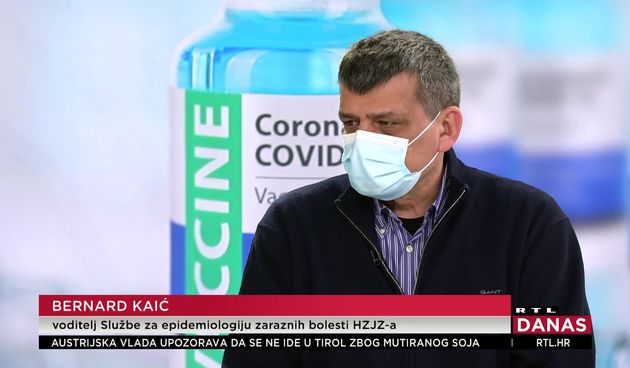 RTL screenshot
RTL screenshot
Later in the interview, the epidemiologist was asked “Due to skepticism towards AstraZeneca, many associations in (Croatia's) border areas plan to take pensioners to Serbia for vaccination. How smart is it to accept such an arrangement?”
The epidemiologist replied; “My only fear is that such organized trips do not turn into corona-trips so that people do not get infected on the way back and forth and do themselves harm. I would wait.”
The three vaccines for which Croatia is currently expecting deliveries are now not the only vaccines available. Speaking in a discussion on the same evening on another Croatian media outlet, HRT, Zlatko Trobonjača, an immunologist from the Rijeka Clinical Hospital, spoke about the Russian vaccine.
"Our country is obviously following the EU and its decisions,” he said. “The EU has entered into talks with Russia. It can be expected that these talks will continue. It is a quality vaccine, it provides high protection.”
"As for the quality of the vaccine, we can see that it is not harmful and it could be used in our country. The EU is oriented towards Western companies. And now, they (the companies) did not stick to the agreement," Trobonjača said, adding that he would be vaccinated with the first vaccine that was made available to him.
Jutarnji List: Croatian Cafes Open on Monday 15 February (and Gyms too)?
February 2, 2021 – The wait is over! In less than two weeks, Croatian cafes and gyms will open, if infection numbers continue on their current downward trajectory
With the spring season just around the corner, people will soon be able to once again enjoy coffee on the sun-filled daytime terraces of Croatian cafes. If Coronavirus infection numbers continue on their current downward trajectory, Croatian cafes and gyms will open on Monday 15 February. All businesses will still have to operate under strict epidemiological measures.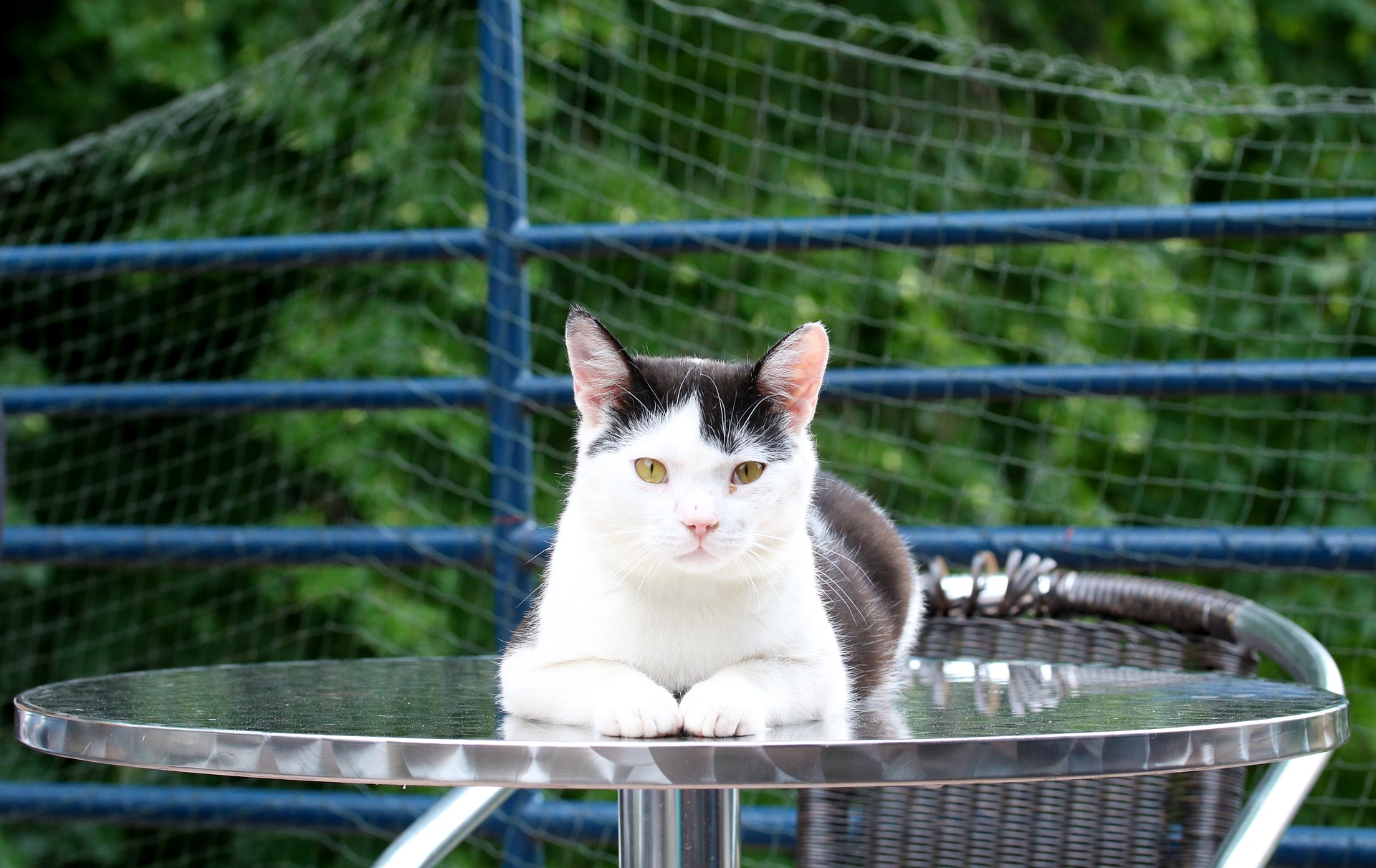
Deputy Prime Minister and the Chief of Staff, Davor Božinović, spoke about the forthcoming concessions on Croatian cafes and gyms, but a fuller picture of how the concessions will actually look was discovered unofficially by Croatian daily Jutarnji List. It was published in the evening of Monday 1st February 2021. The good news soon travelled across Croatia. It will come as a great relief to many independent business owners who have not been allowed to operate.
Business owners have been increasingly on edge over recent weeks, with protest openings of Croatian cafes and gyms threatened to take place in defiance of the current ban on operations (indeed, some did). Owners of Croatian cafes were particularly irked by the seeming inconsistencies in current measures – fast food outlets, gas service stations and bakeries were all permitted to sell coffee to go. People took advantage of this and thereafter congregated on the streets outside such businesses to enjoy their drinks. But, Croatian cafes were still not permitted to service people wishing to drink on outside terraces in almost exactly the same manner.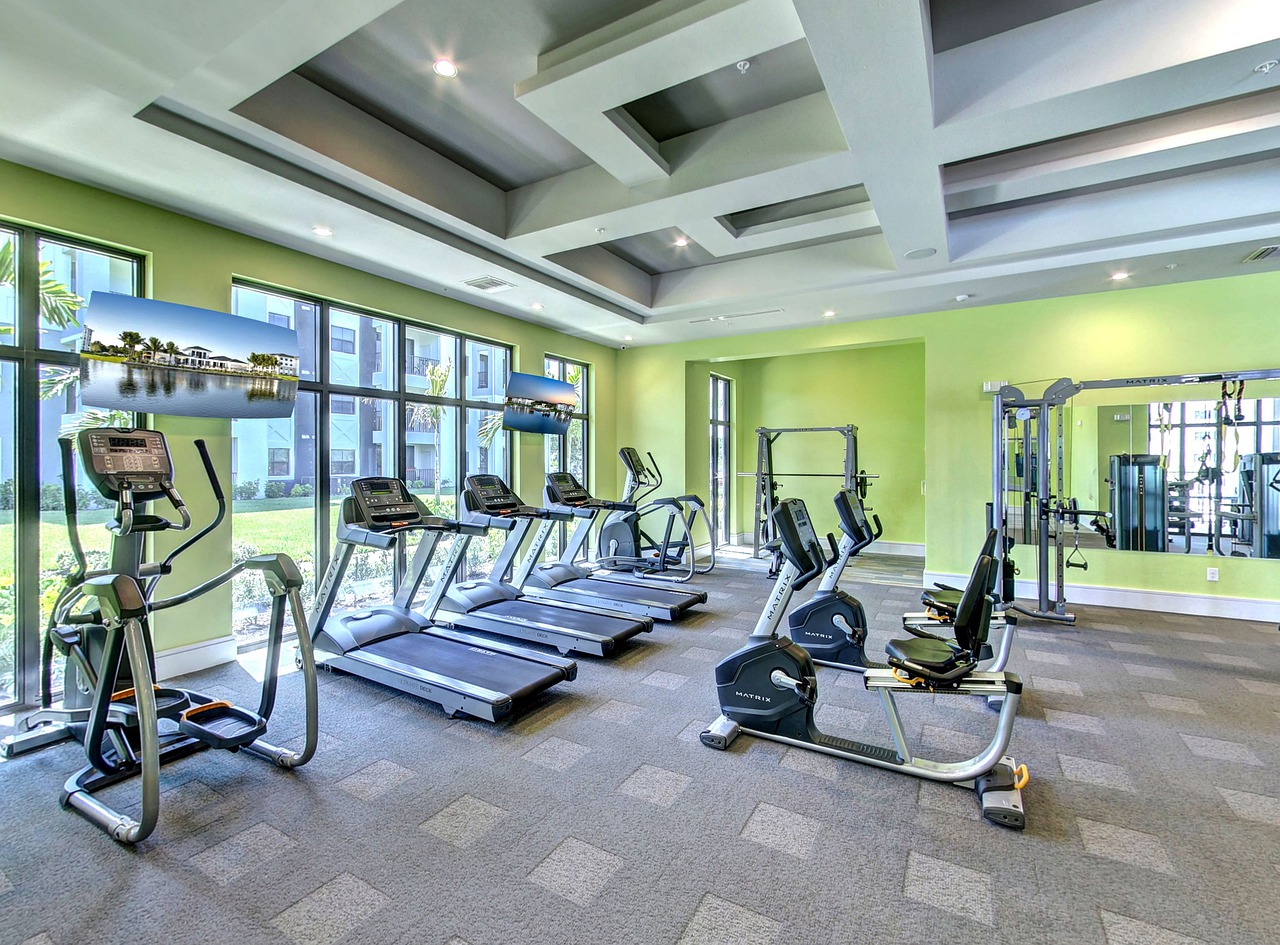
Monday 15 February has long been announced as the next review date for the imposed Coronavirus measures. But, until now, nobody was certain in which way – if any – measures would be relaxed.
Under unofficial plans, from Monday 15 February Croatian cafes will be able to serve coffee and drinks to be consumed on outside terraces, with strict epidemiological guidelines in place.
Croatian cafes and gyms opening on 15 February will be conditional on a continued downturn in infection numbers and the absence of new Coronavirus strains appearing in Croatia
The re-opening of Croatian cafes and gyms is wholly dependent not only on the continuing downturn in numbers of infected but also on the condition that new strains of Coronavirus - specifically those first detected in the UK and South Africa - do not appear in Croatia between now and then.
"If the indicators are good, if the numbers go down, we will certainly not be reluctant to react,” Deputy Prime Minister Davor Božinović said, regarding the 15 February review, “our aim to strike a balance between everything - with an emphasis on health care - has brought us to a position where Croatia has the least stringent measures in the EU."
Coronavirus infection numbers in some other European territories remain at an alarmingly high rate, although a corresponding relaxation in measures for some regions of Italy was similarly announced over recent days. This is the second time since the start of the pandemic that stricter measures imposed by the Croatian government – and a widespread public observance of these measures and other guidelines - have successfully produced the intended results.
Miroslav Tudman, son of Franjo Tudman, has died from Coronavirus
February 1, 2021 – Miroslav Tudman, the first child of Franjo Tudman, died in Zagreb from complications caused by Coronavirus. A scientist and educator who followed a route into politics, he bore a striking resemblance to his father, the first President of Croatia
Miroslav Tudjman, HDZ member of parliament and son of Franjo Tudman, the first President of Croatia, died in the evening of Sunday 31 January 2021 in Zagreb. He was 75 years old.
Miroslav Tudjman had been hospitalized in Zagreb at the beginning of December due to complications caused by Coronavirus. He had been placed on a respirator. He sadly lost his fight for life at the Dr. Fran Mihaljevic Clinic for Infectious Diseases, Zagreb.
Born in Belgrade in 1946, the son of Franjo Tudman and his first wife Ankica Zumbar, Miroslav Tudman moved to Zagreb in 1961. He graduated from the Faculty of Philosophy at the University of Zagreb in 1970 and later became part of the faculty, founding its Institute for Information Studies in 1989.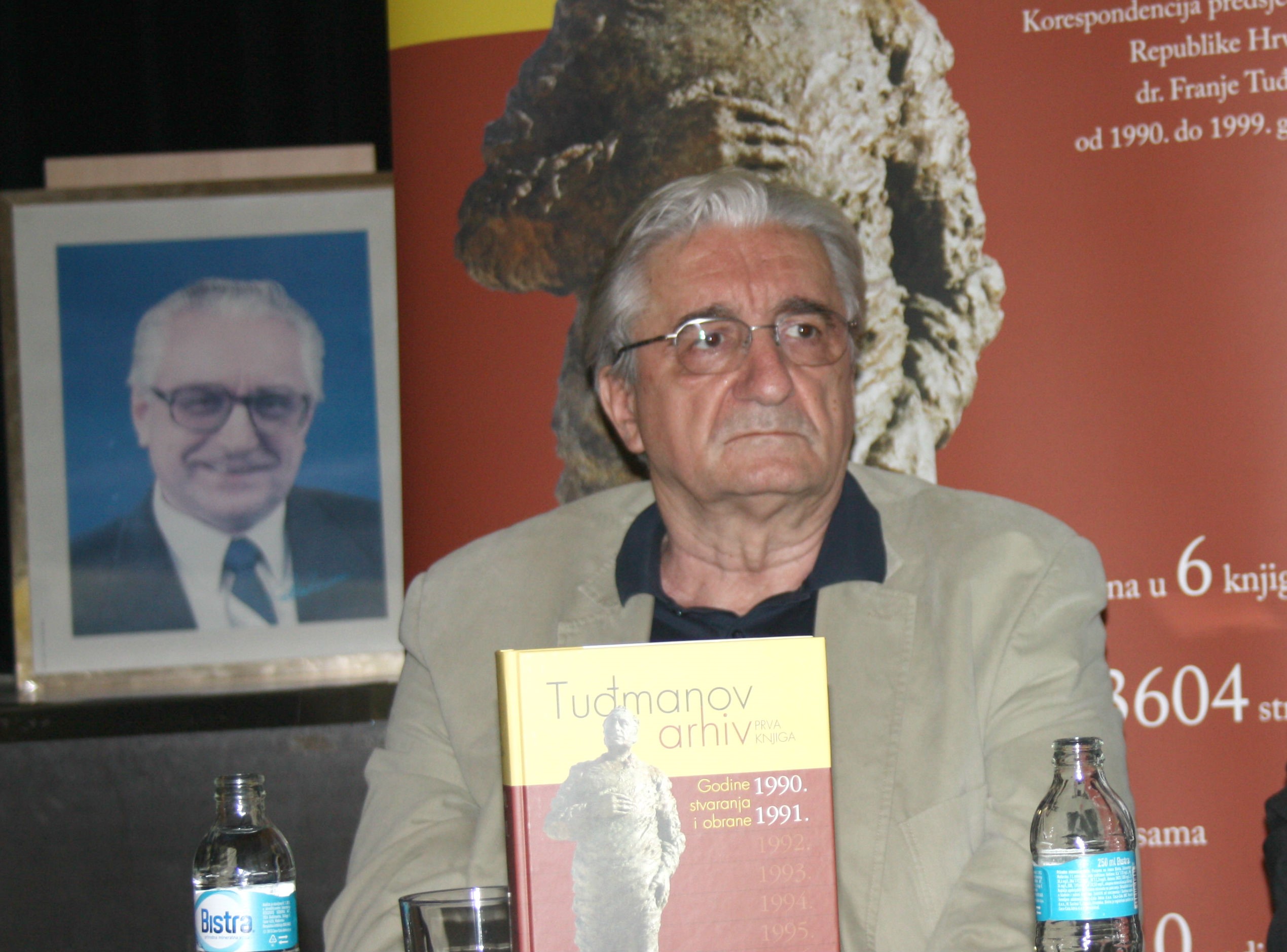 Miroslav Tudman © HDZ
Miroslav Tudman © HDZ
He took part in the Croatian War of Independence and in 1992 Miroslav Tudman became the head of the Centre for Strategic Research. He took up the role as the deputy head of the National Security Office before founding and leading the first Croatian Intelligence Agency (Hrvatska izvještajna služba, HIS). In 1998, Miroslav Tudman became a tenured professor at the Faculty of Philosophy where he had studied.
Miroslav Tudman had dallied with politics since before the war, but it was only after the passing of his father – who died while in office – that they became a more consuming affair for him. He flitted between running as an independent candidate, within fringe parties and as a member of HDZ, the party to which his father belonged. His longest duration with any party was from 2011 and 2021, during which he was a member of HDZ.
At the time of his death, he was a member of the Croatian parliament, head of the Parliamentary Delegation to the NATO Parliamentary Assembly, a member of the Committee on Defence, Internal Policy and National Security, War Veterans and Inter-Parliamentary Cooperation.
Bearing a very close resemblance to his father, Miroslav Tudman was named after Croatian writer Miroslav Krleža who his father adored at the time of his firstborn child.
Prime Minister Andrej Plenković said that he received the news of Miroslav Tudman's death with sadness.
"It is with great sadness that I received the news of the departure of Prof. Miroslav Tudman, PhD, a dear colleague, friend and member of the Croatian Parliament, son of the first Croatian President Franjo Tudman, a prominent politician and a scientist dedicated to protecting national interests," he wrote on Twitter. "In these sad and painful moments, for the Tudman family, I express my sincere condolences and sympathy, on behalf of the government and myself."
For the latest travel info, bookmark our main travel info article, which is updated daily.
Read the Croatian Travel Update in your language - now available in 24 languages
Zagreb Cafes Protest Opening 1st Feb Cancelled, Fines Too Severe
January 31, 2021 – The planned cafes protest in Zagreb and elsewhere, which was due to see 100 facilities open their doors on Monday 1st February in defiance of the current ban on their operations, has been cancelled. Huge fines and the threat of prison are the reason for the climb down. Minister of Economy and Sustainable Development Tomislav Coric appealed to caterers for patience.
The proposed Zagreb cafes protest organised for Monday 1st February has been cancelled. The protest was due to see some catering facilities and gyms open their doors to the public in defiance of the current nationwide ban on operations in such facilities. Around 100 businesses were said to be joining the Zagreb cafes protest.
"Although it has been rumoured that more than 100 caterers in Zagreb will open their facilities on February 1, mostly cafes, or at least start issuing coffee and drinks outside, despite the work ban, it does not seem this will (now) happen, as many have withdrawn after seeing all the consequences that could befall them if they do, " Franz Letica, president of the Zagreb Caterers' Association, told Hina by telephone after the meeting.
On Friday 29 January, the Association of Caterers in Zagreb announced the opening of at least 100 bars and Croatian cafes would open on Monday. An informal meeting of caterers, many who were due to take part in the cafes protest, took place on the afternoon of Saturday 30 January. It seems that at the meeting, plans for the cafes protest fell apart. Caterers had faced the possible punishment of fines - from 20 thousand kuna to 70 thousand kuna - and up to three years in prison for defying the law and opening during the cafes protest.
Petra Odobašić, the owner of a catering facility from Zagreb who attended Saturday's informal meeting, also confirmed to Hina there would be no mass opening on Monday, but that only a dozen caterers would continue with the cafes protest. This handful of establishments were described as being situated mostly in the Dubrava area of Zagreb. Around 80 caterers attended Saturday's informal meeting, mostly from Zagreb, but some from other areas such as Karlovac.
Appearing on Croatian television on Saturday 30 January, Minister of Economy and Sustainable Development Tomislav Coric appealed to caterers for patience.
"We hope there will be (patience)," he said when asked about the proposed act of defiance, "given that we have explained the epidemiological situation we are currently in. We need to think about the season - spring and summer - this will be the time when we can all reap the fruits of responsibility together."
Number of Deaths 13% Higher Due to COVID
ZAGREB, 29 January, 2021 - Croatia registered 13.2% more deaths in March-December 2020, during the COVID-19 pandemic, than at the same time in 2019, the national statistical office said on Friday, adding that year on year the number of deaths in December alone jumped by 77.3%.
In 2020, 8.3% more deaths (+4,350) were registered than in 2019. From March through December, the number of deaths was up by 13.2% (+5,523).
The largest number of deaths in Croatia in a month was registered last December, a total of 7,395, which was up by 77.3% from December 2019 (+3,225).
The second largest number of deaths in a month was registered in January 2017, a total of 6,512, while the third was in January 2019 (5,504).
January and March have been the other months with the most deaths but they have not exceeded 5,500.
Hercegovac Begs Cro PM 'Open Borders So I Can Send My Wife To Her Mother'
January 29, 2021 – Lockdown is apparently taking a toll on one Hercegovac. The man from Široki Brijeg wrote to Croatian Prime Minister Andrej Plenković and begged him to reopen the borders between Croatia and Herzegovina so he could eject his wife from the family home for a month and send her to his mother-in-law's
The message from Hercegovac Ante Zovko (Ante Marinkov) was reposted on the Facebook page Imocki crnjaci where it picked up some 3 thousand likes in less than 6 hours.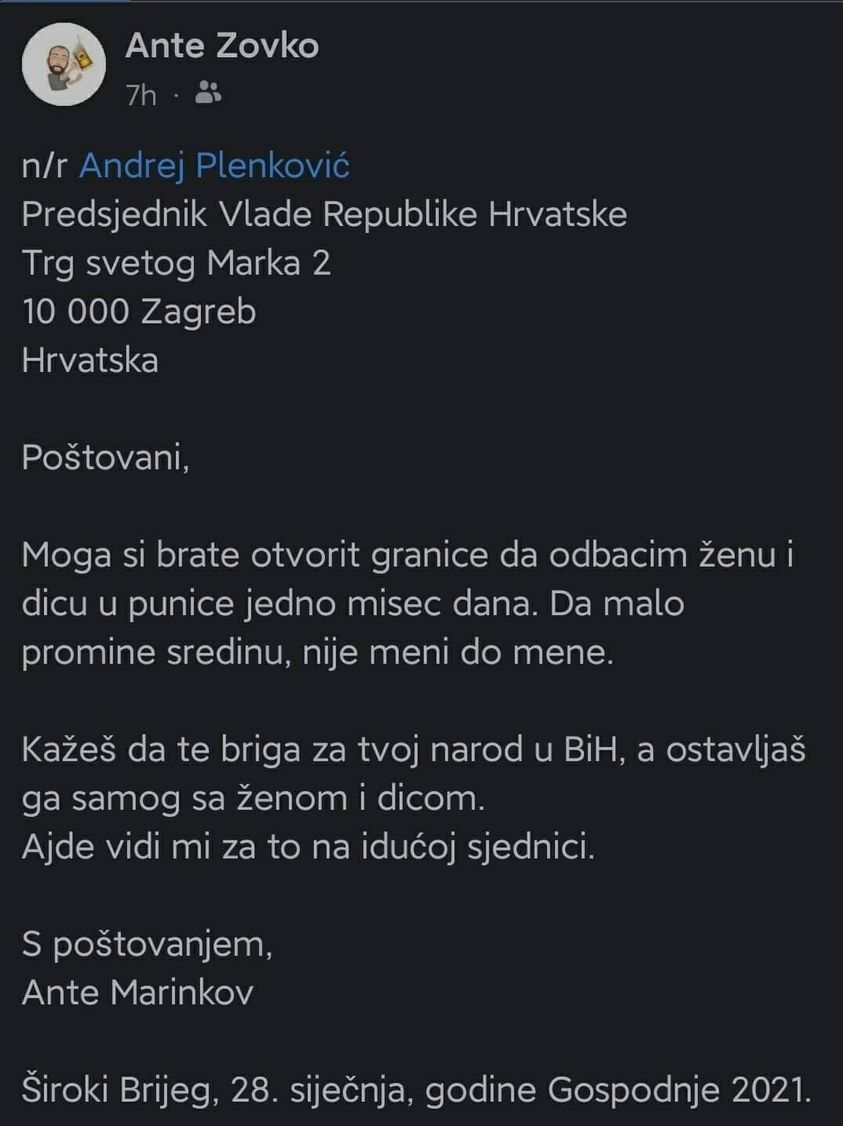
The town, Široki Brijeg, where this particular Hercegovac (a man from Herzegovina) lives is just 35 kilometres from the border with Croatia. Lots of Croatians live in this area, including this Hercegovac, his wife and his child. But not, it would seem, his wife's mother, who apparently lives in Croatia.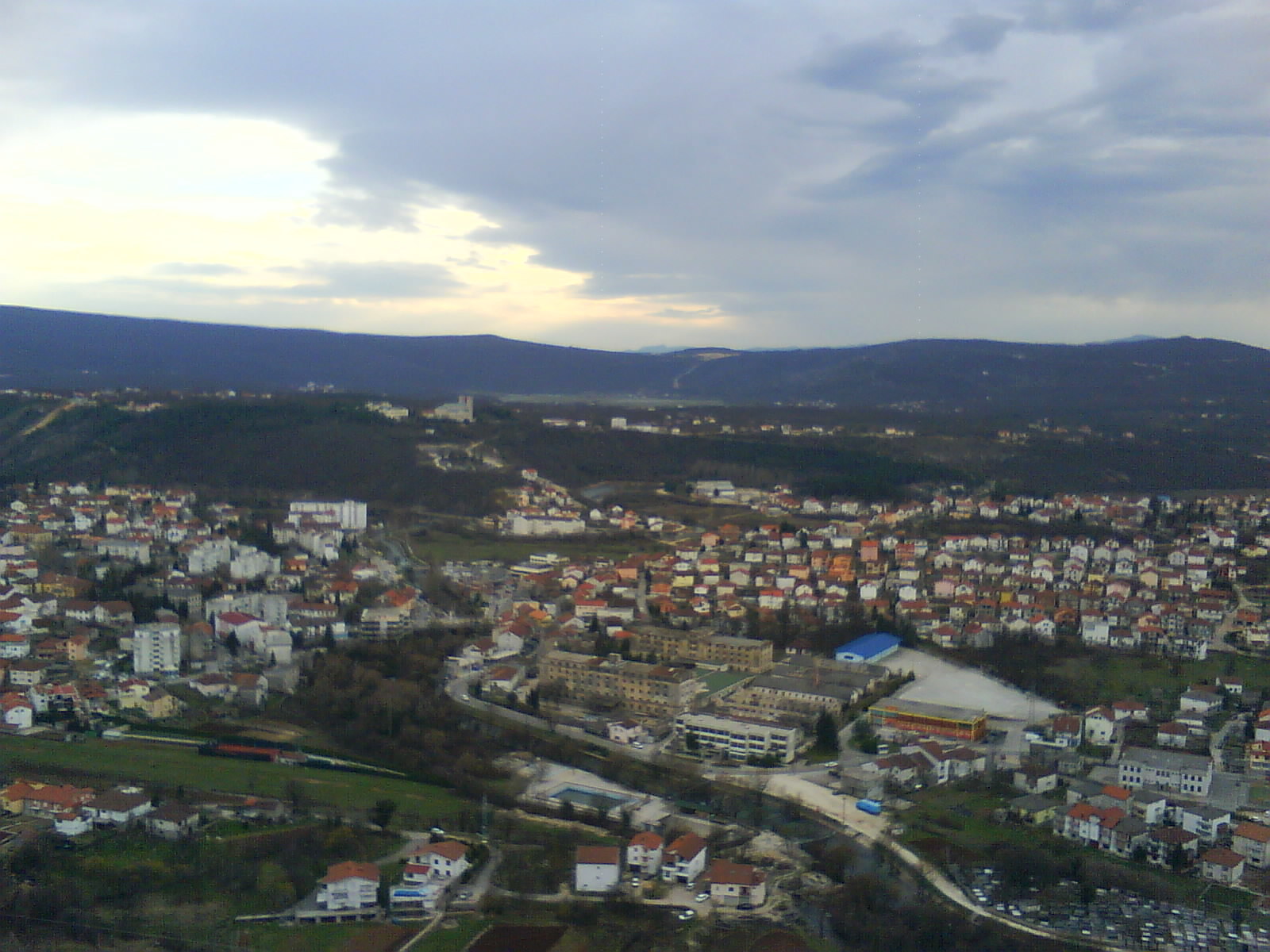 Široki Brijeg in Herzegovina, around 35 kilometres across the border from Croatia © Anto (talk)
Široki Brijeg in Herzegovina, around 35 kilometres across the border from Croatia © Anto (talk)
The Hercegovac's reason for wishing to eject his wife and child for a month was to change up the atmosphere for a time. One presumes he was not being entirely serious with his request.
The Hercegovac is not the first man to seemingly reach the end of his tether while restricted to staying in the family home. In April 2020, after just one month of being housebound, a man from a village near Osijek in Slavonia left his wife in the family home and went to live nearby in a tent.
Speaking anonymously at the time, the man's neighbour told the local SiB.hr news portal the couple have been happily married for 30 years. But, it seems the pressure of being around each other so closely during the lockdown was too much even for their strong union.
The neighbour was happy to report that since his friend pitched his tent in the nearby locale, relations between the man and his wife had actually returned to their usual levels of warmth and friendliness. The wife even came regularly to visit her husband in his tent. © John Waring
© John Waring
"My neighbour has been in his tent for a few days now,” he told the portal back in April. “He puts up a table and chairs in front. Occasionally our other neighbour comes over to drink some rakija (with him). I visited him too.”
The neighbour said his friend had quit the family home due to boredom more than anything else. Even after being happily married for 30 years, being around each other 24 hours a day was apparently just too much.
Perhaps in this more chivalrous response from the Slavonian man, Hercegovac Ante Marinkov could take some inspiration? After all, it's surely easier if one person departs from his family home in order to change the atmosphere than if two are forced to leave. Ante should find a nice spot in the fields nearby – not too close – and simply pitch up a tent. Problem solved! If he's lucky, his wife might come to visit bringing rakija.
VIDEO: Prohibition-Era Nightclubbing Zagreb, 33 Fined
January 29, 2021 – It has all the ingredients of a movie about Al Capone or Lucky Luciano in 1920s Chicago - illicit, hidden drinking dens, dancing girls, bullets, guns, gangsters and a police raid, only with a neon lighting scheme that remains fashionable strictly in Balkan clubs. Welcome to Prohibition-era nightclubbing Zagreb
It has all the ingredients of a movie about Al Capone (main picture) or Lucky Luciano in 1920s Chicago - illicit, hidden drinking dens, dancing girls, bullets, guns, gangsters and a police raid, only with a neon lighting scheme that remains fashionable strictly in Balkan clubs. Welcome to Prohibition-era nightclubbing Zagreb.
Croatian police have issued a video of a raid they undertook to shut down a Prohibition-era nightclubbing party in Zagreb. Inside the venue, they found 33 persons. None were wearing masks.
One young man at the party was caught with a pistol and bullets. If it weren't for the police's modern helmets with visors and the Balkan-cool neon lighting, you could be forgiven for thinking you were watching Eliot Ness and The Untouchables busting an illegal speakeasy. All cafes, restaurants, bars and nightclubs are supposed to be closed at the moment under measures adopted to counter the spread of Coronavirus.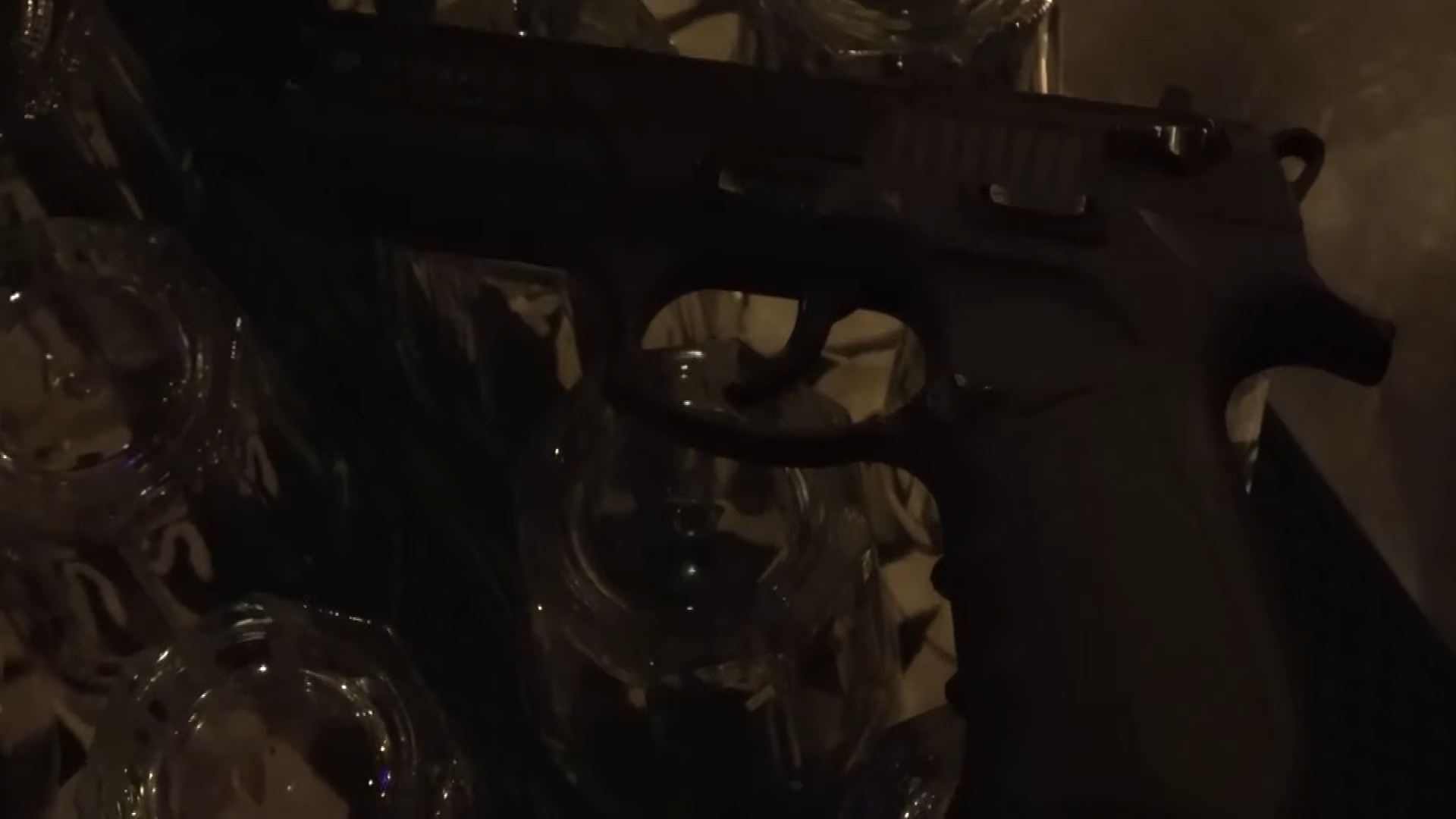 The pistol found by police while conducting a search on a 24-year-old at the club - Youtube screenshot
The pistol found by police while conducting a search on a 24-year-old at the club - Youtube screenshot
In the original era of America's Prohibition, under which the production, import, transportation, and sale of alcoholic beverages was illegal, Al Capone ultimately received an 11-year prison sentence for tax evasion and Lucky Luciano was looking at 30 - 50 years until he struck a deal and agreed to be deported to Italy. Thankfully, there are no mafia murders connected to this tale of Prohibition-era nightclubbing in Zagreb.
In addition to the video, the police released a statement about the prohibition-era nightclubbing raid:
"During the operation, a total of 33 people were found, identified and checked in said facility. No coercive measures were used during the actions of the police officers. 33 people were found not wearing protective masks, which is why the police officers issued them three Notices of Misdemeanor and 30 fines were collected for violations of Article 47, paragraph 2, item 9 of the Law on the Protection of the Population from Infectious Diseases.
Furthermore, for one of the caught persons, a 24-year-old was searched and a gas pistol was found in his possession, for which he was issued a Mandatory Misdemeanor Order for the offence under Article 27, paragraph 2 of the Law on procurement and possession of weapons by citizens. Bullets found by the police at the prohibition-era nightclubbing scene in Zagreb
Bullets found by the police at the prohibition-era nightclubbing scene in Zagreb
Also, officials of the Directorate of Civil Protection found violations of epidemiological measures contrary to the Decision on necessary epidemiological measures restricting gatherings and introducing other necessary epidemiological measures and recommendations to prevent the transmission of Covid-19 through gatherings. Due to performing catering activities contrary to the decisions of the Civil Protection Headquarters, officials of the State Inspectorate, Tourist Inspection, Zagreb Regional Office found a violation of Article 9A of the Catering Act and issued an oral decision banning the work, and the facility was sealed for at least 30 days. Misdemeanor proceedings will be initiated against the legal and responsible person.
As part of the criminal investigation, the 45-year-old owner of a catering facility was taken to the official premises of the Zagreb Police Administration for a criminal investigation on suspicion of having committed the criminal offence of "Spreading and Transmitting an Infectious Disease" under Article 180. He will be handed over to the custody supervisor after the criminal investigation is completed”
Prohibition in the United States took place in a 13 year period between 1920 and 1933. It is highly unlikely that the bars and cafes of Zagreb will be asked to remain closed for such a length of time. This is not the first instance of Prohibition-era nightclubbing taking place irrespective of epidemiological guidelines in Zagreb. In late November 2020, Croatian media (including Juarnji List) widely reported on police raids that took place at two Zagreb venues, even though measures adopted in the fight against the pandemic were at that time more relaxed.
Croatia Registers 134 New Coronavirus Infections, 32 Deaths
ZAGREB, 25 January, 2021 - Over the past 24 hours, Croatia has registered 134 new cases of the coronavirus infection and 32 related deaths, the national COVID-19 crisis management team said on Monday.
The number of active cases in Croatia stands at 2,519. There are 1,485 COVID patients in hospitals, 138 of whom are on ventilators.
There are 15,109 people in self-isolation.
To date 1,156,456 people have been tested, including 2,423 in the last 24 hours.
Since 25 February 2020, when Croatia registered its first case, 229,054 people have contracted the novel coronavrius, 4,859 of whom have died. A total of 221,676 people have recovered, including 579 over the past 24 hours.
Franjo Tudman Face Masks A Covid-Era Hit On Social Media
January 24, 2021 – First President of Croatia makes a Covid-era comeback, as new Franjo Tudman face masks become a hit on social media
So far, the nationally specific Covid-era face masks seen on the streets of Croatia have been rather divisive. The logos of the country's bigger football clubs look good but could land you in grief if you travel to the other side of the country while wearing one. The outlawed slogans and insignia of Nazi-allied independent Croatia are a rather more gruesome reminder of the minority of fascist sympathisers that sadly linger in the village. Thankfully there are few tourists here right now to be appalled at such.
Three cheers, then, for the arrival of a distinctly Croatian covering of which the whole country can approve. Though released relatively recently, the new Franjo Tudman face masks have already proved to be a Covid-era hit on social media.
The Franjo Tudman face masks were designed by nationally recognized Rijeka singer-songwriter Dražen Turina, best known by the nickname Šajeta, which is also the name under which his music is released. Along with Pula singer Alen Vitasović and his band Gustafi, Šajeta is a key composer of contemporary Croatian music that uses the Chakavian dialect. Dražen Turina revealed the Franjo Tudman face masks on his Twitter social media account, where they became instantly popular.
Distancing himself from any misunderstanding that the Franjo Tudman face masks had been inspired by sentiments of nationalism, Šajeta instead playfully bemoaned the wearing of masks by young Croats that feature the images of foreign figures. He said he deliberately choose a photo of the former Croatian president smiling for the Franjo Tudman face masks.
It is not yet clear if Šajeta plans to make the Franjo Tudman face masks widely available. Followers of the singer on Twitter were keen to ask if he would be making other masks featuring nationally famous figures.
The Franjo Tudman face masks are far from the first tributes to be paid to the first President of Croatia. There are more statues dedicated to Franjo Tudman in Croatia than any other person. Following Croatia's independence from Yugoslavia, Franjo Tudman became the first President of Croatia and served in the position from 1990 until his death in 1999.
All images from the Twitter account of Šajeta
45 People With Fake PCR Tests Detained At Croatian Border In One Weekend
January 19, 2021 – 45 people tried to enter Croatia with fake PCR tests this weekend alone. They were caught by Croatian police, detained at the border and reported to the State's Attorney office. If found guilty, each faces a maximum penalty of three years in prison
Some 45 people tried to enter Croatia through the borders of one county with fake PCR tests this past weekend.
Travel from Bosnia and Herzegovina into Croatia currently requires the production of a negative PCR test or a doctor's certificate proving you have successfully passed through a COVID-19 infection in recent months.
Since the ban on entering Croatia from Bosnia and Herzegovina without a negative PCR test was introduced, fake PCR tests are increasingly being forged. Border police and customs officers at crossings in Brod-Posavina County have met many people trying to cross the border with fake PCR tests. But, this weekend a new record number of forged tests were found on the county's border crossings.
According to a statement from the Brod-Posavina Police Department, as many as 45 attempts to enter the country with fake PCR tests were discovered on Saturday and Sunday.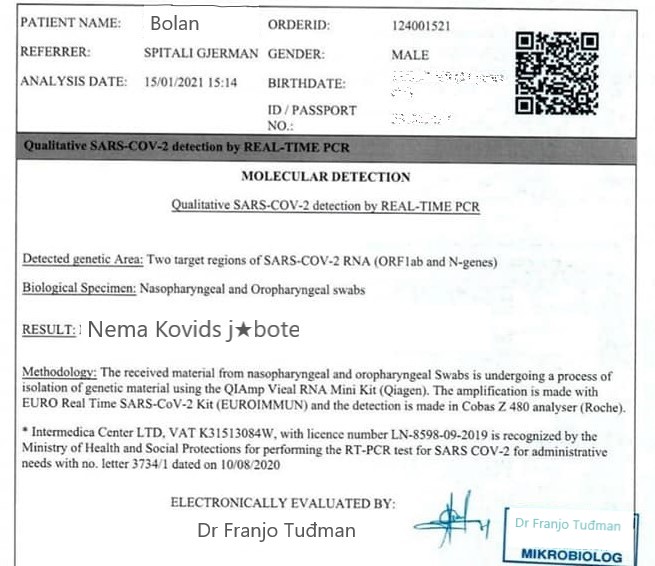
"At the Stara Gradiška border crossing, police officers determined that 43 persons, mostly citizens of Bosnia and Herzegovina, presented fake PCR tests issued in BiH at the border control. At the Slavonski Brod border crossing, two people were registered who gave forged tests," the Brod-Posavina police reported.
Police officers file criminal charges against all those suspected of committing the criminal offence of forgery of a document with the Municipal State Attorney's Office in Slavonski Brod. If found guilty, such persons face up to three years in prison.
The overall number of people detained on Croatia's border with fake PCR tests this weekend could actually be higher - the figures of 45 persons detained with fake PCR tests were released by the police of just one county in Croatia - Brod-Posavina County. A further eight Croatian counties exist along the border with Bosnia and Herzegovina. Each has border crossings between the two countries.


